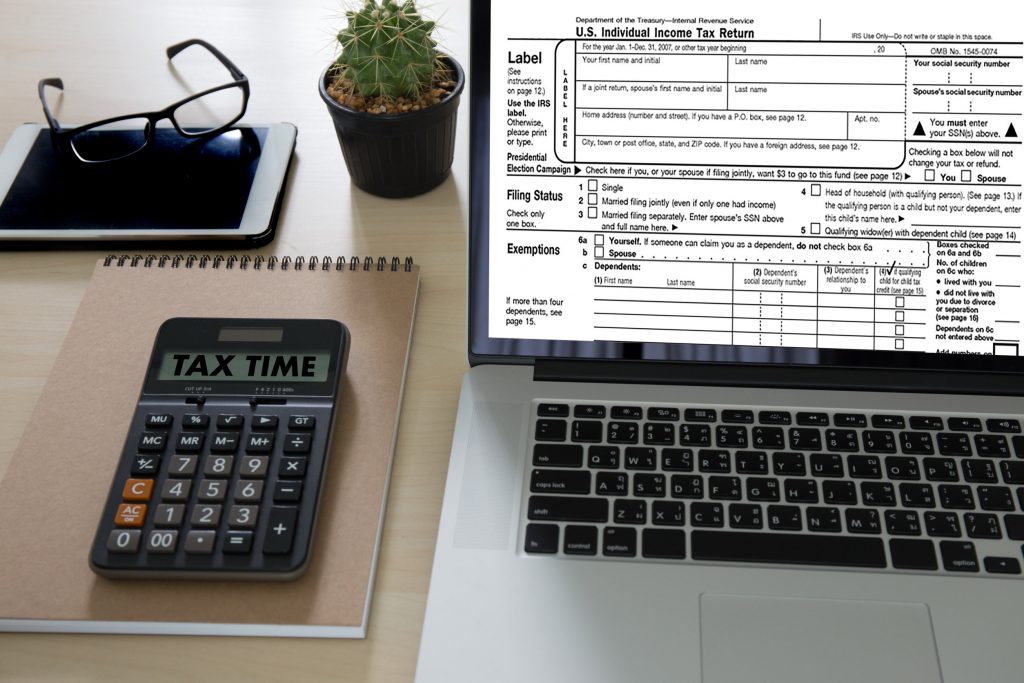It’s officially tax season, and you may be anxious to receive a well-deserved tax refund. But when it comes to filing your taxes in Arizona, the last thing you want to do is rush through the process—even a seemingly small error could result in a rejected return.
To help make sure that you get the biggest refund in the quickest amount of time, follow this Lerner and Rowe Law Group guide to the 2021 tax season.
When Are 2021 Taxes Due?
Individuals had the opportunity to begin submitting their tax returns as early as January 24, 2022 and must do so no later than April 18, 2022. If you need an extension for your federal and Arizona state taxes, you must file an Application for Automatic Extension to File U.S. Individual Income Tax Return (Form 4868). This will extend the deadline to October 17, 2022. Please note that extensions apply only to filing your taxes—you cannot use the extension to delay making a payment on your 2021 tax liability.
Related: How To Eliminate Your Tax Debts
Who Is Required to File a 2021 Tax Return?
You are required to file a federal tax return if you cannot be claimed as a dependent and meet the following criteria (see IRS Publication 501):
| Filing Status | Gross Income |
| Single (Under 65) | $12,550 or more |
| Married filing jointly (Both under 65) | $25,100 or more |
| Married filing separately | $5 or more |
| Head of household (Under 65) | $18,800 or more |
| Qualifying widow(er) (Under 65) | $25,100 or more |
You are required to file an Arizona state tax return if you meet the following criteria:
| Filing Status | Gross Income |
| Single | $12,550 or more |
| Married filing jointly | $25,100 or more |
| Married filing separately | $12,550 or more |
| Head of household | $18,800 or more |
Note: If you are an Arizona resident, you must report income from all sources, including income earned out of state.
What Information Do You Need to File Your Taxes in Arizona?
Before you file, you need to make sure you have access to all the necessary documents. Whether you’re filing on your own or with the help of a tax preparation service, try to organize the following documents ahead of time:
- Social security number or Individual Taxpayer Identification Number (ITIN)
- Government-issued ID such as a driver’s license, state ID, or passport
- Your bank name, account number, and routing number (if you want to receive your refund as a direct deposit)
- Your W-2, 1099 form, or your final pay stub from 2021 (if you are unable to access your W-2)
- Healthcare coverage statements (IRS forms 1095-A, 1095-B, or 1095-C)
- Letter 6419 (if you received Advanced Child Tax Credit payments)
- Letter 6475 (if you received a third stimulus check)
- Records of any donations made to qualifying charitable organizations
- Name, address, tax ID, and payment records for child care
- Supporting evidence for the Earned Income Child Tax Credit, including birth certificates for each child, proof that qualifying children lived with you for more than half of 2021, and a letter from your child’s school to your home address
- Supporting documentation for any other tax credits or deductions you plan to claim
Where Can You File Your Taxes for Free?
If you’re concerned about the cost of filing your taxes in Arizona, there are several programs you can utilize to get your federal and state taxes done for free. If your adjusted gross income (AGI) is $73,000 or less, you can receive free guided tax preparation from an IRS private partner. Check out the IRS Free File Online website for more information and to compare your free options.
If you prefer to file your taxes by mail, you can also download free fillable forms at any income level from the IRS website, although no tax guidance is provided. In addition, tax returns submitted by mail usually require longer processing times, which is why the IRS strongly encourages people to file electronically.
If you need one-on-one assistance in preparing your taxes, the Volunteer Income Tax Assistance (VITA) and Tax Counseling for the Elderly (TCE) programs may be able to help. To qualify, you must make less than $58,000 per year, have a disability, speak limited English, or be over the age of 60. Visit the IRS Free Tax Prep webpage to find a VITA or TCE site near you and book an appointment.
What if You Can’t Afford to Pay Your Taxes?
If you can’t afford to pay your taxes, the worst thing you can do is ignore the problem and hope that it goes away. (Spoiler alert: it won’t.) If you don’t pay your tax liability by the due date, the IRS will start charging interest on the amount you owe, in addition to other penalties. If you continue to ignore your tax debts, you could wind up facing liens on your property, wage garnishment, or jail time for tax evasion.
If you know that you’ll owe taxes for 2021, you have several options. You can apply online for a short term payment plan (120 days or less) or a long-term installment plan. Penalties and interest still apply, but are less than they would be for failure to pay. You may also pay your taxes by using a credit card or by applying for a debt consolidation loan.
How Lerner and Rowe Law Group Can Help
If you’re struggling financially this tax season, you’re not alone. Whether you’re trying to save your home or car from repossession, erase your credit card debt, pay off your student loan, or get out from under medical debt, Lerner and Rowe Law Group may be able to help.
Our experienced Arizona bankruptcy lawyers offer free and confidential consultations to anyone looking for a fresh start. Our legal team will review your financial situation and explain all your legal options. Should you decide to move forward with our services, we also offer $0 down bankruptcies and affordable payment plans.
Contact us 24/7 by calling 602-667-7777 (Phoenix) or 520-620-6200 (Tucson). You can also get in touch online with a LiveChat agent or by filling out this form.



